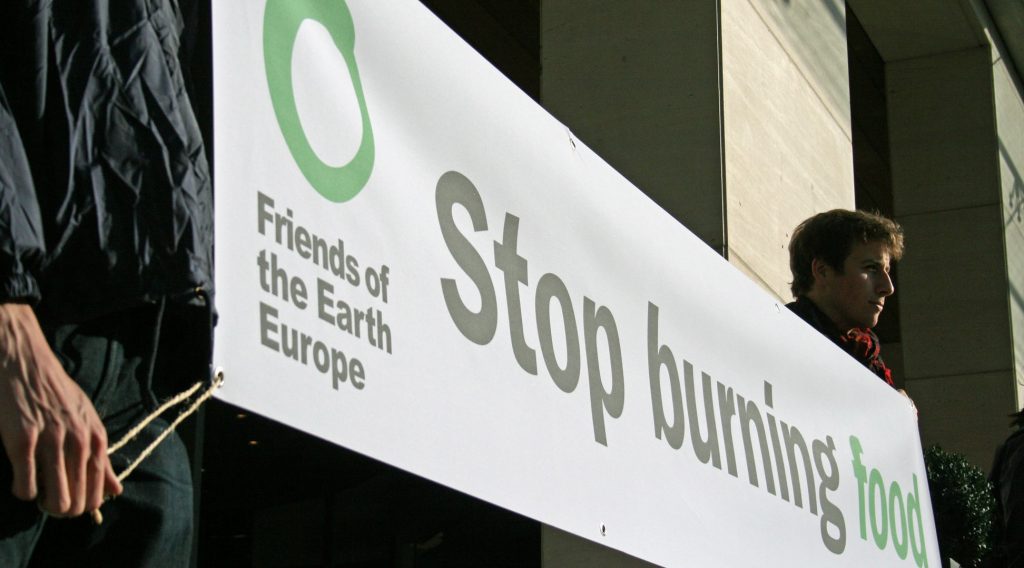The European Parliament’s environment committee voted today on legislation to limit the quantities of ‘food based’ biofuels in renewable energy transport targets for Europe.
MEPs voted with a 60% majority to:
- Introduce a limit on biofuels that compete with food for land and water – but at 5.5% of transport energy, representing an increase from the current level of 4.5%.
- Introduce correct accounting for the full costs of biofuels on the climate, including CO2 from felling forests, plundering peatlands, and expanding agriculture (so-called ILUC).
- Continue subsidising the use of food for fuel until 2020 – risking more hunger and reduced food consumption.
Reacting to the results of the vote, Robbie Blake, biofuels campaigner for Friends of the Earth Europe said: “The result of the vote shows MEPs have understood that biofuels cause hunger, deforestation and carbon emissions. But they have not voted for strong enough action to remove these threats.
“This vote would put a necessary pause on the expansion of biofuels, but we need to end biofuels competing with food production by phasing out this misguided use of food for fuel altogether.”
The amendments the environment committee voted on today will next be put to a vote of the full Parliament plenary on September 10 in Strasbourg.
New analysis released this week shows growing crops for biofuels would lead to less food being produced, forcing more people into hunger. The use of certain crops that have been predicted to have modest carbon savings – such as bio-ethanol from wheat and maize – would directly remove quantities of food from the food chain and force people to eat less to reduce carbon, reveals the new paper by leading scientist Timothy Searchinger [1].
– – –
NOTES:
[1] ‘Understanding the Biofuel Trade-offs between Indirect land use change (ILUC), Hunger and Poverty‘ – research paper by Timothy Searchinger and summary briefing by Friends of the Earth Europe







